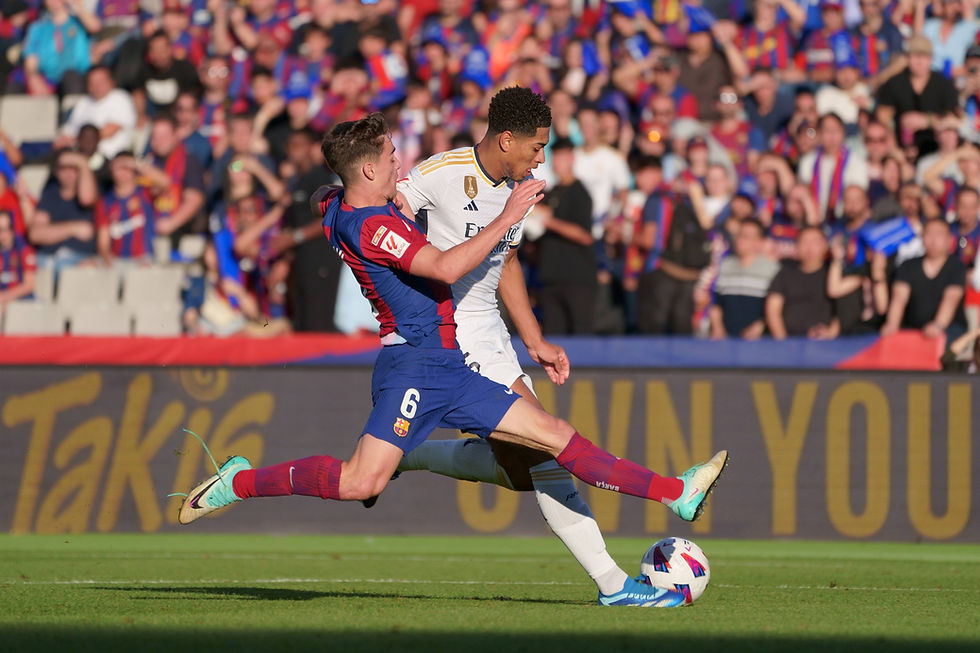Solving Soccer's Own Concussion Problem
- David Abunaw
- Aug 3, 2021
- 3 min read
Updated: Sep 2, 2022
As soon as my head made contact with the ball, I knew something was wrong. The nightmare had just begun. My biggest fear while playing soccer competitively was a head injury. Playing as a lone striker it was often my job to challenge for long balls in the air. I had developed a system to avoid head injuries. Only go for the header if you would 100% win it. If not, just “body” the opposing player and avoid head-to-head contact. For over 10 years this worked, and I never experienced a head injury. This all changed in October 2019.
At the time, I worked as Team Administrator Intern with Hartford Athletic of the USL. I often helped the outside backs with crossing drills after training by finishing off their crosses. One day a cross was whipped by Harry Swartz, and I headed it in the goal. Now, I had headed a ball possibly a million times in my lifetime, but this time was different. As soon as I made contact with the ball, I felt everything shake in my head and face. I immediately knew something was wrong. Long story short, it turns out I suffered my first concussion. I had awful symptoms that lasted for months. I never thought I would get a concussion with my defensive approach to heading. However, I didn’t realize heading on its own is dangerous to anyone.
This is why this week's news from the English Football Association (English FA) did not come as a surprise to me. The English FA has released new guidelines concerning heading at the professional level. Previously heading restrictions in the UK and US had been placed only on youth soccer players. Under these new guidelines “Professional clubs will be directed to limit 'high force' headers - those following a long pass of more than 35 meters or from crosses, corners and free-kicks - to 10 per training week, while also developing specific player profiles which will help tailor their training needs.” This should be welcome news for professional players in England.
Although limiting headers in training is a great step, heading is still very much part of official matches. Ever since my concussion, I sometimes struggle watching players violently head the ball. Is it possible that this is the first step towards a limitation of heading in official matches? The laws of the game are fluid and have constantly changed over the past 100 years. There was a time when goalkeepers could pick up a pass back or a time with no red cards/yellow cards. The NFL, for example, has implemented several rules in the past 10 years to cut back on concussions. The NFL claims these rule changes have reduced concussions by 35%.
These guidelines from the English FA may end up being the first step towards official soccer matches with no heading or limited heading. Unlike the NFL getting rid of tackling, any sort of limitation to heading, although drastic, would not completely change the game of soccer. Soccer is still largely a passing game played with the feet. It is actually not unusual to do drills in training where the ball has to stay on the ground. This also comes at the time when there have been other proposed rule changes to the game. For example, Real Madrid President Florentino Perez of Super League fame has proposed shortening soccer games in an effort to court a younger audience. In fact, FIFA recently held a tournament in July 2021 called the Future of Football Cup where 5 new rule changes were implemented as an experiment of sorts. These included unlimited substitutions, yellow card sin bins, 30-minute halves, kick ins instead of throw ins and dribbling from corners. Perhaps if and when these new rules are implemented a limitation on heading will be added as well. I guess time will tell.
David Abunaw is a rising second year law student at the University of Pennsylvania Law School and Sports Events Chair of the Entertainment & Sports Law Society. Connect with him about sports and entertainment on Instagram: @davidako10 and Twitter: @davidabunaw.







EPS Machine EPS Cutting…
EPS Machine Eps Raw…
EPS Machine EPS Recycling…
EPS Machine EPS Mould;
EPS Machine EPS Block…
EPP Machine EPP Shape…
EPTU Machine ETPU Moulding…
EPS Machine Aging Silo…
EPTU Machine ETPU Moulding…
EPS Machine EPS and…
EPS Machine EPS and…
AEON MINING AEON MINING
AEON MINING AEON MINING
KSD Miner KSD Miner
KSD Miner KSD Miner
BCH Miner BCH Miner
BCH Miner BCH Miner
EPS Machine EPS Cutting…
EPS Machine Eps Raw…
EPS Machine EPS Recycling…
EPS Machine EPS Mould;
EPS Machine EPS Block…
EPP Machine EPP Shape…
EPTU Machine ETPU Moulding…
EPS Machine Aging Silo…
EPTU Machine ETPU Moulding…
EPS Machine EPS and…
EPS Machine EPS and…
AEON MINING AEON MINING
AEON MINING AEON MINING
KSD Miner KSD Miner
KSD Miner KSD Miner
BCH Miner BCH Miner
BCH Miner BCH Miner